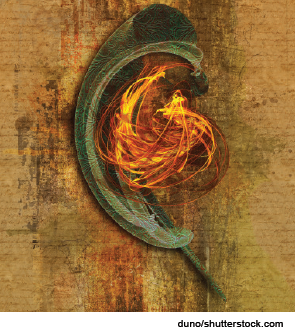
There are a variety of causes of SSNHL.
Explore This Issue
November 2014A panel discussed this new research and provided context for the new clinical care guidelines for SSNHL in a session here at the AAO-HNS Annual Meeting.
Previous research has found that patients with AIED who are steroid resistant have higher levels of plasma interleukin-1 beta (IL-1B) than those who respond to steroids and that the IL-1 receptor antagonist anakinra can suppress its release. Andrea Vambutas, MD, chair of otolaryngology at Long Island Jewish Medical Center and North Shore University Hospital in New York, hopes that recent findings on patients with AIED are also found to be true for patients with SSNHL.
In a new study, Dr. Vambutas and her colleagues treated patients with AIED who had a decline in hearing with corticosteroids for 30 days. Those who didn’t respond were treated with anakinra therapy for 84 days. Phase I/II trial results show that the anakinra-treated steroid-resistant patients had audiometric improvement when compared with standard therapy (J Clin Invest. 2014;124:4115-4122).
“Sudden sensorineural hearing loss and autoimmune inner ear disease may have similar immunologic responses to disparate antigens,” Dr. Vambutas said. “I’m hoping that what we saw in autoimmune inner ear disease will translate to sudden sensorineural hearing loss, because it’s clearly a much larger population that needs to be served.”
That study stemmed from previous work demonstrating increased circulating IL-1beta in patients with steroid-resistant immune-mediated hearing loss.
Her laboratory has observed that steroid-sensitive, immune-mediated hearing loss is associated with an in vitro reduction of tumor necrosis factor (TNF) release in response to steroids in patients who are clinically responsive to corticosteroids (Arch Otolaryngol Head Neck Surg. 2012;138:1052-1058). Similarly, the antioxidant L-N-acetyl cysteine (LNAC) also can block the release of TNF. This finding helped explain earlier findings that steroids combined with LNAC produced twice as many patients with total hearing recovery than those just taking steroids (Acta Otolaryngol. 2012;132:369-376; Arch Otolaryngol Head Neck Surg. 2012;138:1052-1058).
Sudden Hearing Loss Guidelines
Panelists also discussed the guidelines for clinical care of sudden hearing loss, published by the AAO-HNS in 2012 (Otolaryngol Head Neck Surg. 2012;146(3 Suppl):S1-S35.)
James Saunders, MD, associate professor of otology/neurotology at the Geisel School of Medicine at Dartmouth in New Hampshire, said SSNHL still leaves a lot to be desired when it comes to evidence. “It still continues to be something that’s identified as a gap in knowledge in our membership,” he said.